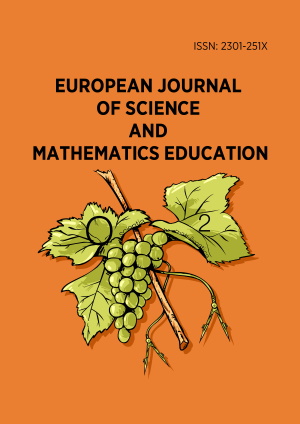Research Article
Primary school teachers’ interviews regarding pedagogical content knowledge (PCK) and general pedagogical knowledge (GPK)
More Detail
1 Department of Teacher Education, University of Helsinki, Helsinki, Finland* Corresponding Author
European Journal of Science and Mathematics Education, 1(2), July 2013, 84-105, https://doi.org/10.30935/scimath/9390
OPEN ACCESS 2952 Views 1788 Downloads
ABSTRACT
Pedagogical Content Knowledge (PCK) and General Pedagogical Knowledge (GPK) are fundamental types of knowledge for a teacher that he or she must use in order to plan, teach in the classroom, and assess students’ learning outcomes. This paper investigates experienced primary school teachers’ PCK and GPK while teaching science in Finland and in Thailand. Teachers’ interview data were analysed by using deductive and inductive content analysis. The analysis units were analysed according to the categories and sub-categories of PCK and GPK. In addition, the frequencies of all PCK and GPK sub-categories were counted and presented by country. The analysis revealed that the Finnish teachers had flexibility in their teaching: they did not have specific techniques with which to handle students; the techniques used depend on the situations occurring at the moment. There were no strict rules for student discipline in the class. They emphasised the teaching of concepts through textbook and computer materials. In Thailand, the teachers emphasised the teaching and learning of procedural knowledge and consequently used experimentation, along with authentic materials in the lab. There were student discipline problems in the classroom; therefore, rules were set up to cope with those problems.
CITATION (APA)
Sothayapetch, P., Lavonen, J., & Juuti, K. (2013). Primary school teachers’ interviews regarding pedagogical content knowledge (PCK) and general pedagogical knowledge (GPK). European Journal of Science and Mathematics Education, 1(2), 84-105. https://doi.org/10.30935/scimath/9390


 The articles published in this journal are licensed under the CC-BY Creative Commons Attribution International License.
The articles published in this journal are licensed under the CC-BY Creative Commons Attribution International License.